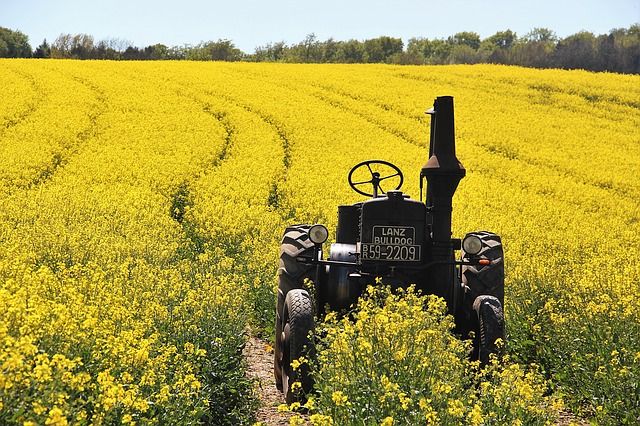In recent months, the focus of conversations in the agriculture technology startup scene has moved on from the initial excitement about the potential for technology to transform and disrupt the industry. The conversation now centers around the slow rate of adoption by farmers and the industry more widely, particularly as low commodity prices are set to put pressure on farmers’ wallets for the next five years at least.
There are other factors at play too, such as low risk appetite among much of the farming population — 60% of which are reaching retirement age — and the single growing season for many farmers, according to a recent whitepaper published by Jonah Kolb, vice president at farm management group Moore & Warner, and Arne Duss, founder and CEO of HighPath Consulting.
But a recent survey, conducted by Caledonia Solutions, a consulting firm in Minneapolis, sheds a more positive light on the situation.
“There is a lot of money being invested in developing these products and services, and lots of media buzz about this sector, but the overall perspective of what is happening at the farm level has been missing,” Dr. Robert Hill, principal of Caledonia Solutions, told AgFunderNews. “That’s why we decided to provide this perspective.”
As many as 25 percent of large farmers plan to increase their spending on new farm equipment technology and agronomic data technology, according to the survey of 300 MidWest farmers with at least 1,500 acres of broadacre farmland under management.
The study details current adoption rates and future growth projections for 34 separate equipment and data technologies. The total number of new equipment and data technologies deployed by a grower is also going to more than double over the next six years, according to the survey.
While the results seem to contradict what others in the industry are reporting, the study indicated that agtech adoption is on the up, and Dr. Hill says this is the beginning of a ‘Third Wave’ in modern agtech after the introduction of genetically modified seeds and GPS-enabled equipment.
“We were very surprised at the results. Overall the industry is down, as is the spending on these types of products, but this sector of large growers is a little different,” Dr. Hill said. “As a group they are also down, but much to our surprise some of them are actually increasing their spending on technology. I did not believe this at first, but we looked hard at the data and the growers gave very valid reasons for their increases.”
Of course, as with any technology, there are early adopters and the masses come later, and the growers who participated in the survey were reported to be on the leading edge in their communities, but that sets the stage for others to follow their lead.
Dr. Hill noted that whatever reduces input costs and/or increases yields, is the most important consideration and the specific technology that gets there is not the issue. The benefits should then be powerful enough to keep this adoption moving forward at a strong clip, even in the currently depressed state of the farm economy.
Scott Henry, business development manager of LongView Farms in Iowa, believes some startups struggle to present a clear solution for farmers, however.
“In my experience, and I’ve sat across table from a lot of them, is that they often struggle to define a realistic and defendable value proposition so that makes all of this a bit more risky,” he told AgFunderNews in a recent interview.
Dr Hill agrees that there is work ahead for some startups in how they present their offerings.
“Too much emphasis seems to go into developing and selling bells and whistles,” he said. “First convince the growers that you’re meeting a well-defined need of theirs, and prove it. Technology that does that will sell itself, even in a down market.”
But overall he is confident that adoption will naturally grow as smaller farmers follow the lead of larger, more innovative groups.
“The barriers to entry by a grower to acquire new technologies are coming down rapidly,” he said. “This will make it palatable to smaller growers. Also, I see technologies playing a bigger role in the specialty crop markets as well, especially around labor replacement.”
Watch out for an upcoming podcast with Moore & Warner’s Jonah Kolb later this week and read our interview with LongView Farms’ Henry on his interaction with the agtech startup scene here.
Where do you see the major challenges to adoption? Get in touch [email protected].





